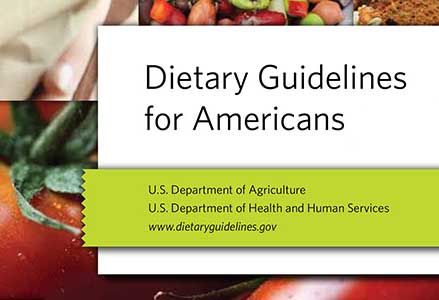Blog
Search
Blog
Extending Bar Hours=Increased Harm, Burden on Communities
- Details
- Created: Monday, May 11 2015 16:16

Pennsylvania State Rep. Jordan Harris, D-Phlia, recently proposed issuing extended use permits in the state that would allow bars to stay open from the current limit, 2am, to 4am. Harris makes the claim that other proponents of late-night bar hours have made: that allowing extended bar hours will help the economy and raise tax revenues. So far, the PA legislature doesn't appear to support the proposal. Though it included a 10% increase to liquor licensing fees to apply for the late-night use permit, the modest fee increase would be unlikely to cover the increased municipal cost of crime prevention and courts, emergency room visits, and other costs associated with increased consumption.
Research has shown that increasing bar hours results in increased impaired driving and collisions; violent crime; injuries; and nuisance issues such as increased noise and litter. It also places increased burden on local law enforcement agencies, which must contend with more problems, often without an accompanying increase in resources to do so. The Centers for Disease Control and Prevention (CDC) recommends maintaining or increasing limits on days and hours of alcohol beverage sales to limit alcohol-related harm due to excessive consumption.
Download the new fact sheet here.
Tickets Now On Sale--REEL Recovery Film Festival & Symposium, June 11-14, 2015
- Details
- Created: Friday, May 15 2015 13:37
Alcohol Justice and Studio City-based Writers In Treatment announced today that tickets are now available for the 2nd Annual REEL Recovery Film Festival & Symposium – San Francisco Bay Area Edition. The four-day health and wellness event celebrates film, the arts, writing and creativity about addiction, alcoholism, behavioral disorders, treatment and recovery.
The festival will present 18 select feature-length and short, fictional and factual alcohol and drug addiction themed films in 14 sessions at two locations - the New People Cinema on Post St. in San Francisco, and the Smith Rafael Film Center in San Rafael. The program includes one world premiere and four Bay Area premieres that highlight addiction and substance misuse as well as the hope and opportunity for recovery. There will be expert panel discussions following most of the screenings.
Alcohol Justice and Writers In Treatment are producing the event with generous support from the San Francisco Sheriff's Department, Duffy's Napa Valley Rehab, Center Point, Inc., West America Bank, Kaiser Permanente Community Benefits Programs - Marin-Sonoma Area, Marin County Mental Health Substance Use Services, Ghilotti Construction Company, KRON-TV, the Michael Basso Foundation, Muir Wood Adolescent and Family Services, KPOO-FM, North Bay Recovery Center, Hotel Kabuki, Book Passage Book Store, and many Bay Area individuals and families.
The festival opens at the New People Cinema on Thursday, June 11, 2015, with the premiere of a true story, Girl on the Edge, starring Peter Coyote. The film follows the journey of a young girl struggling with the aftermath of a horrific trauma, the toll that it takes on her family and the last chance she has to overcome it in the most unlikely of places. A post-screening Q&A will take place with Producer/Director Jay Silverman, and actors Taylor Spreitler and Mackenzie Phillips. Immediately following there will be a VIP Reception at the Hotel Kabuki with live music by singer/songwriter Elizabeth Edwards.
"The REEL Recovery Film Festival helps to bring alcoholism and addiction out of the closet," stated Michael Scippa, festival director. "Our goal is to reduce the stigma, and raise public awareness that it is not a moral failing but a devastating disease that, like other potentially fatal diseases, requires specialized treatment."
Tickets are available exclusively through BrownPaperTickets.com. For more information about the festival and to view a PSA featuring Michael Pritchard go to: FilmFestSFBay.org.
Alcohol Justice Comments on 2015 Dietary Guidelines Report; Deadline Extended
- Details
- Created: Tuesday, March 17 2015 11:28
Read Alcohol Justice's comments here.
The deadline for submitting comments has been extended to May 8, 2015.
Submit comments at http://www.health.gov/dietaryguidelines/dga2015/comments/writeComments.aspx.
Read & download a US Alcohol Policy Alliance fact sheet on the 2015 Dietary Guidelines.

The Report proposes a risky and harmful shift in its definition of moderate drinking, and promotes drinking as a healthy dietary behavior. It suggests that a two-to-threefold increase in daily consumption limits is safe, and that questionable claims of health benefits outweigh known, substantiated risks of alcohol consumption. The Report represents a significant departure from previous Dietary Guidelines, and does so without sufficient scientific basis to justify such a shift.
The Dietary Guidelines should recommend ways to reduce and prevent alcohol-related harm, not increase it. The Dietary Guidelines are a joint effort of the U.S. Department of Health and Human Services and the U.S. Department of Agriculture, with administrative leadership and support from the Office of Disease Prevention and Health Promotion and the USDA Center for Nutrition Policy and Promotion. With current and growing evidence regarding risk of disease and harm from drinking even low levels of alcohol, the Dietary Guidelines should include recommendations for Americans to drink less alcohol - not more.
Urge the federal government to reject the proposed changes to the 2015 Dietary Guidelines on alcohol, and retain the alcohol recommendations from the 2010 Dietary Guidelines.
Click here and search for "alcohol" to see the alcohol recommendations in the Report (571 pages).
More Articles ...
Subcategories
Help us hold Big Alcohol accountable for the harm its products cause.
| GET ACTION ALERTS AND eNEWS |
STAY CONNECTED    |
CONTACT US 24 Belvedere St. San Rafael, CA 94901 415-456-5692 |
SUPPORT US Terms of Service & Privacy Policy |
Copyright © 2026 Alcohol Justice. All Rights Reserved.
Joomla! is Free Software released under the GNU General Public License.




